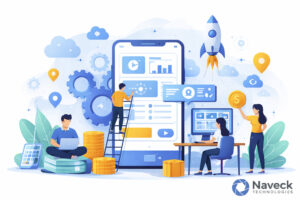The landscape of software development has undergone dramatic transformations over the past decade, with artificial intelligence emerging as a game-changing force that’s reshaping how development teams approach agile methodologies. As organizations worldwide embrace digital transformation, the integration of AI technologies into agile software development practices has become not just an advantage, but a necessity for staying competitive in today’s fast-paced market.
The convergence of AI and agile development represents a paradigm shift that’s fundamentally altering traditional software development workflows. From automated code generation to intelligent testing protocols, AI is enhancing every aspect of the software development lifecycle, making teams more efficient, productive, and capable of delivering high-quality solutions at unprecedented speeds.
The Foundation of Modern Agile Development
Agile methodology has long been the cornerstone of successful software development, emphasizing iterative development, continuous feedback, and adaptive planning based on the core principles of agile methodology. However, the traditional challenges of manual processes, time-consuming testing cycles, and resource allocation bottlenecks have often hindered teams from achieving their full potential. This is where AI steps in as a transformative catalyst.
The integration of AI into agile practices isn’t merely about automation—it’s about intelligent augmentation of human capabilities. Modern AI development companies are pioneering solutions that seamlessly blend artificial intelligence with agile methodologies, creating hybrid approaches that leverage the best of both worlds.
AI-Powered Code Generation: The New Frontier
One of the most significant impacts of AI on agile development lies in automated code generation. Advanced AI systems can now analyze requirements, understand context, and generate functional code snippets that align with project specifications. This capability has revolutionized the initial development phases, allowing teams to focus on higher-level architecture and creative problem-solving rather than routine coding tasks.
The emergence of sophisticated AI agents for code generation has transformed how developers approach software creation. These intelligent systems can understand natural language requirements and translate them into working code, significantly reducing development time and minimizing human error. The result is faster sprint cycles, more consistent code quality, and enhanced team productivity.
Contemporary software development companies are increasingly adopting AI-powered code generation tools to streamline their development processes. These tools don’t replace human developers but rather enhance their capabilities, allowing them to tackle more complex challenges while AI handles routine coding tasks.
Intelligent Testing and Quality Assurance
Testing has always been a critical component of agile development, but traditional testing methods often created bottlenecks that slowed down release cycles. AI has revolutionized this aspect by introducing intelligent testing protocols that can automatically identify potential issues, generate test cases, and even predict where bugs are most likely to occur.
The implementation of AI in specialized software testing has enabled development teams to achieve unprecedented levels of quality assurance. Machine learning algorithms can analyze code patterns, identify vulnerabilities, and suggest improvements in real-time, ensuring that quality issues are addressed before they become critical problems.
Modern AI testing frameworks can simulate thousands of user scenarios, stress-test applications under various conditions, and provide comprehensive feedback that would be impossible to achieve through manual testing alone. This capability allows agile teams to maintain their rapid development pace while ensuring robust, reliable software delivery.
Enhanced Project Management and Resource Allocation
AI’s impact on agile development extends beyond coding and testing into project management and resource allocation. Intelligent project management systems can analyze team performance, predict potential roadblocks, and suggest optimal resource distribution to maximize efficiency and minimize delays.
These AI-powered management tools can process vast amounts of project data, identify patterns in team productivity, and provide actionable insights that help project managers make informed decisions. The result is more accurate sprint planning, better resource utilization, and improved project outcomes.
The integration of AI in project management has also enhanced communication and collaboration within agile teams. Intelligent systems can automatically generate status reports, track progress against milestones, and even suggest adjustments to project timelines based on real-time performance data.
Transforming Business Operations Through AI Integration
The adoption of AI in agile development has far-reaching implications for business operations. AI assistants are transforming business operations by streamlining workflows, automating routine tasks, and providing intelligent insights that drive strategic decision-making.
Organizations that successfully integrate AI into their agile development processes often see significant improvements in time-to-market, cost efficiency, and overall product quality. These benefits extend beyond the development team to impact the entire organization, creating a competitive advantage that’s difficult to replicate.
The Role of AI Development Tools in Modern Workflows
The availability of advanced AI development tools has democratized access to artificial intelligence capabilities, making it easier for development teams to incorporate AI into their agile workflows. The best AI development tools and top coding agents are now accessible to teams of all sizes, from startups to enterprise organizations.
These tools range from simple code completion assistants to sophisticated AI agents that can handle complex development tasks autonomously. The key is selecting the right combination of tools that align with your team’s specific needs and development objectives.
Top AI code generators for developers have become essential components of modern development environments, offering features like intelligent code completion, automated refactoring, and real-time code optimization. These tools seamlessly integrate with existing development workflows, enhancing productivity without disrupting established processes.
AI’s Impact on Web and Mobile Development
The influence of AI on agile development is particularly pronounced in web and mobile application development. Web development companies are leveraging AI to automate responsive design creation, optimize user experiences, and implement intelligent features that adapt to user behavior.
Similarly, mobile app development companies are using AI to streamline the development process, from initial design concepts to final deployment. AI-powered tools can generate platform-specific code, optimize app performance, and even predict user preferences to inform design decisions.
The integration of AI in web and mobile development has also enhanced the creative aspects of these disciplines. Web design companies are using AI to generate design variations, optimize layouts for different devices, and create personalized user experiences that would be impossible to achieve manually.
Daily Business Applications and Practical Implementation
The practical implementation of AI in agile development extends to daily business operations, where AI tools for daily business use are becoming increasingly sophisticated and accessible. These tools help teams manage workflows, automate routine tasks, and make data-driven decisions that improve overall project outcomes.
The successful implementation of AI in agile development requires careful planning and consideration of various factors, including team readiness, technical infrastructure, and organizational culture. Companies must also consider the global landscape of software development, including insights from top countries for software development outsourcing, to make informed decisions about resource allocation and team composition.
Emerging Opportunities and Business Innovation
The intersection of AI and agile development has created numerous opportunities for innovation and business growth. Entrepreneurs and established companies alike are exploring the best AI business ideas for startups, leveraging the power of AI-enhanced development processes to create new products and services.
The ongoing evolution of AI agents reshaping software development continues to open new possibilities for innovation. These intelligent systems are becoming more sophisticated, capable of handling increasingly complex tasks and making autonomous decisions that previously required human intervention.
Comprehensive AI Integration in Software Development
The broader implications of AI in software development extend far beyond individual tools and techniques. Organizations are discovering that successful AI integration requires a holistic approach that considers technical, cultural, and strategic factors.
This comprehensive approach involves not just implementing AI tools, but also restructuring development processes, training team members, and establishing new workflows that maximize the benefits of AI-enhanced agile development. The result is a transformation that goes beyond simple automation to create genuinely intelligent development environments.
Future Outlook and Emerging Trends
Looking ahead, the integration of AI in agile software development is expected to become even more sophisticated and seamless. Emerging trends include the development of AI systems that can understand and adapt to team dynamics, predictive analytics that can forecast project outcomes with remarkable accuracy, and autonomous development agents that can handle entire development tasks from conception to deployment.
The future of AI-enhanced agile development will likely see even greater emphasis on human-AI collaboration, where artificial intelligence augments human creativity and problem-solving capabilities rather than replacing them. This collaborative approach promises to unlock new levels of productivity and innovation in software development.
Conclusion
The revolution that AI is bringing to agile software development represents more than just technological advancement—it’s a fundamental shift in how we approach software creation. By intelligently automating routine tasks, enhancing decision-making processes, and providing unprecedented insights into development workflows, AI is enabling teams to achieve levels of efficiency and quality that were previously unattainable.
As we move forward, the organizations that successfully integrate AI into their agile development processes will be those that understand AI not as a replacement for human capability, but as a powerful amplifier of human potential. The future belongs to teams that can harness the power of artificial intelligence while maintaining the collaborative spirit and adaptive flexibility that make agile development so effective.
The journey toward AI-enhanced agile development is ongoing, with new tools, techniques, and best practices emerging regularly. By staying informed about these developments and thoughtfully implementing AI solutions, development teams can position themselves at the forefront of this transformative movement, delivering better software faster and more efficiently than ever before.
The revolution is here, and it’s transforming not just how we build software, but how we think about the entire development process. Embracing this change isn’t just an opportunity—it’s essential for any organization that wants to remain competitive in the rapidly evolving landscape of software development.



